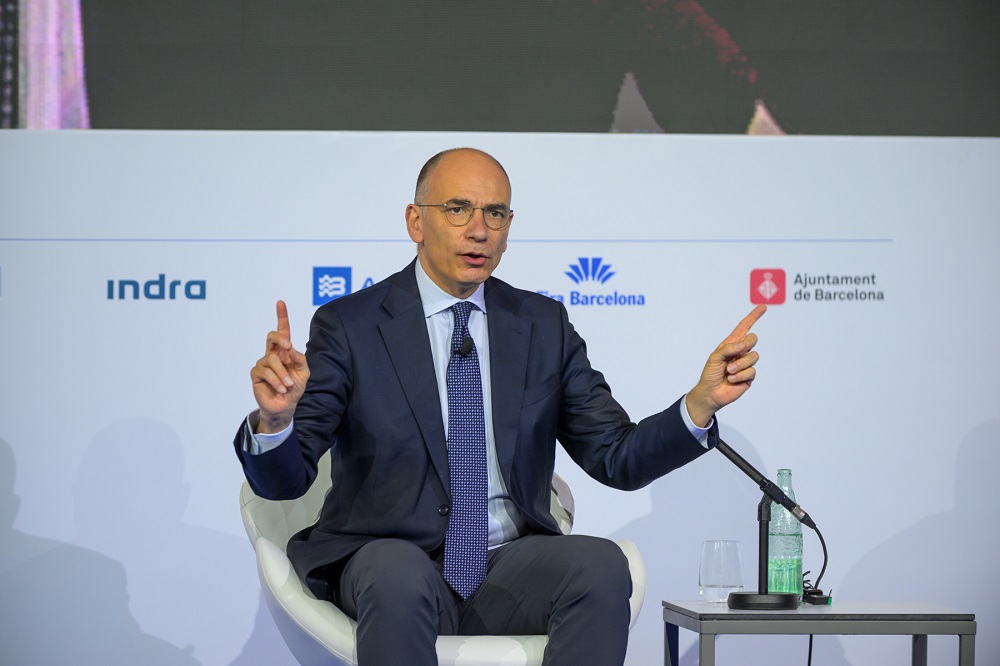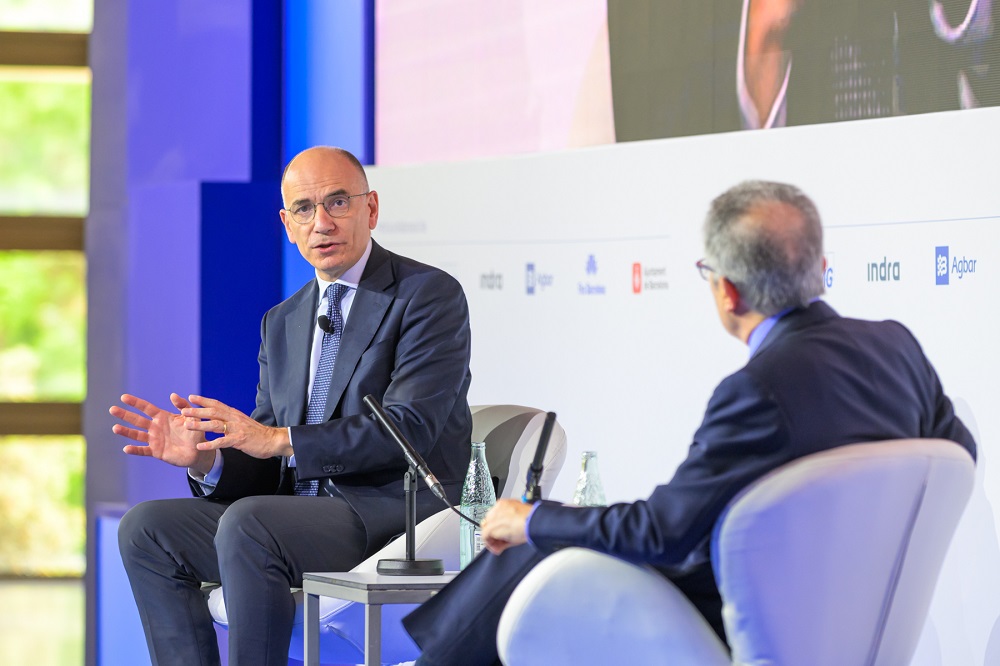Xavier Vives, member of the Board of Directors of Cercle d'Economia, presented some of the main conclusions of Enrico Letta's report on the European Union (EU) single market. He indicated that "Europe lags behind the United States and China in terms of competitiveness and productivity": as an example, he described that from 1993 to 2012 per capita productivity in the United States grew by 60% while in Europe it grew by 30%, and that the level of productivity in the United States was 20% higher than in Europe in 2022 (when they had been similar in 1990).
He explained that "the single market needs an update because it was designed for a less integrated world." And that "Europe has a declining and ageing population, which accounts for less than 6% of the world's population, and many challenges such as the green and digital transition, enlargement and security".
In his turn to speak, Enrico Letta, former Prime Minister of Italy, presented the proposals in relation to the EU's single market, included in the report "Empowering the Single Market to deliver a sustainable future and prosperity for all EU citizens" and prepared as a result of a tour of Europe by the Italian (with 400 meetings held in 65 cities) that "has made it possible to collect a collective vision of the challenges of the European single market".

One of the European problems that Letta mentioned was interconnection in Europe, "especially in high-speed rail transport". For the speaker of the session, "(in Europe) we are very good at creating our national markets, but we are not good at enlargement".
Recalling his relationship with Jacques Delors, one of the promoters of the single market, he shared with the attendees "three key pieces of advice" that the Frenchman gave him: the importance of community cohesion policy; the need to adapt to a changing world with new powers such as China and India; and the urgency of completing the single market in the energy, telecommunications and financial sectors.
Letta highlighted the "fragmentation" of European financial markets as a crucial problem, arguing that "a lot of European savings end up in the United States." For this reason, he emphasized "the need to integrate financial markets to keep our savings here." Savings that he also related to the costs of the European transition: "It will be expensive and both private and public resources will have to be found to finance it".
Continuing his speech, he attributed the European integration deficit to political rather than economic causes and pointed to the lack of a complete banking union as a "key obstacle" to the achievement of a single financial market. Here he wanted to adopt an optimistic outlook because "the four main European countries, including Germany, now agree on the need to integrate financial markets".

The Fifth Freedom (for Innovation)
The former prime minister of Italy also underlined the growing importance of innovation in Europe with the proposal to create a "fifth freedom" to promote it. In his diagnosis based on the report, Letta states that "the lack of innovation in Europe is a great difficulty" and that it is crucial to work on intangibles such as knowledge and research. In this sense, he proposed that the next European Commission (the one resulting from the last European elections) have a vice-presidency dedicated to this new freedom (an idea that has the support of Ursula Von der Leyen herself, according to Letta).
On the other hand, with the aim of promoting private capital for innovation, he suggested the creation of European university networks to compete with Chinese and North American investments: "We have to create networks of universities to attract funds and improve research".
At the same time, he referred to "regime 28", a "European virtual legal system" that would allow companies "to operate throughout the EU under a single legal framework". Letta reasoned that this simplification would be especially beneficial for SMEs, as "only 17% of SMEs are benefiting from the single market". From his point of view, this idea - which has been well received in the United States, where businessmen have seen it as "a solution to European fragmentation" - is essential to attract investment and make the single market more accessible.
China, the United States and the United Kingdom
In the face of growing competition from the United States and from China (a competition that Letta explained can be "fair" at times and, at other times, "unfair"), he was "optimistic" (in terms of the role that the European Union can play in this context) but emphasised the weight of financial services, size, independence and defence as the necessary factors to succeed in this area. "Europe has to act quickly because the gap with the United States will continue to grow," he said.
As for the United Kingdom, he advocated "reopening a discussion with the country, but I think we must do it on the topic of defence" and for the benefit of mutual interest.